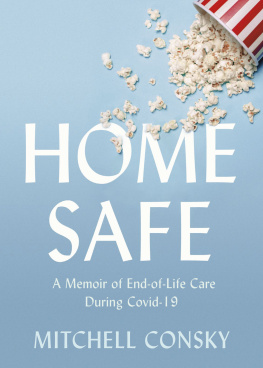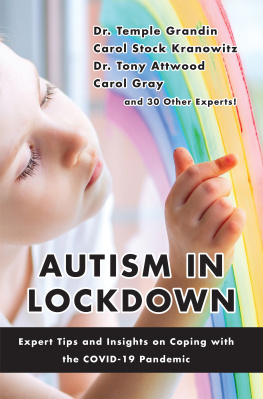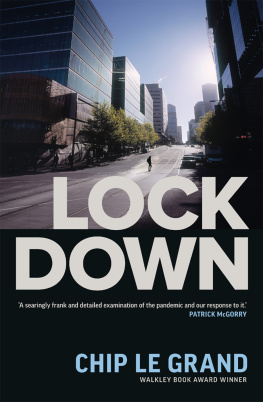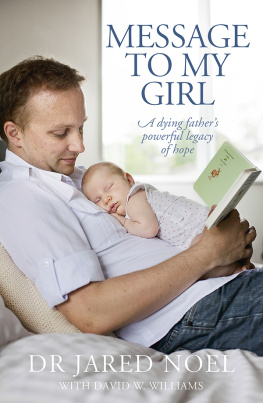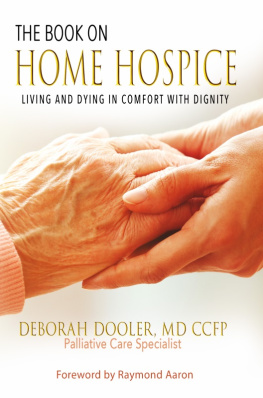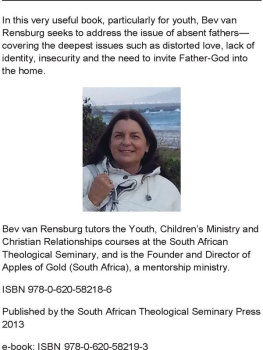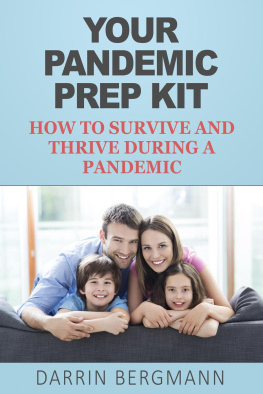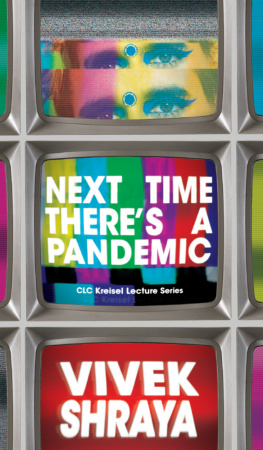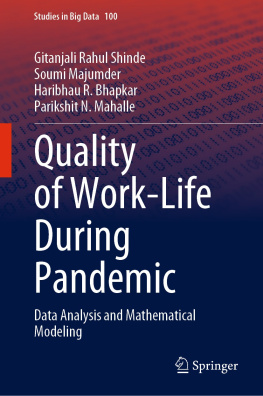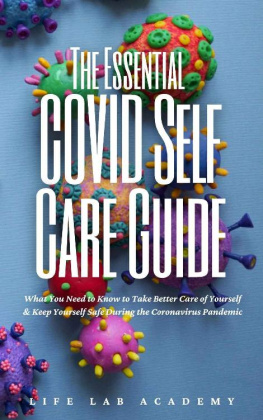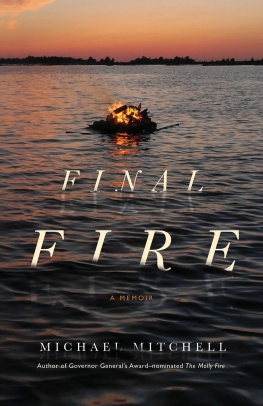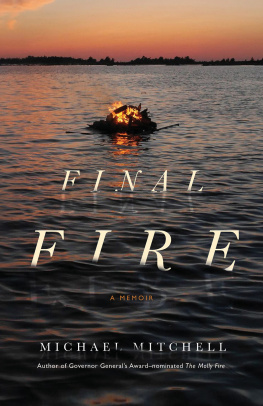Table of Contents
Landmarks
List of Pages
Acknowledgements
I have some incredible people in my life who helped this story grow from a campfire ramble to the book in your hands. Given what and who this memoir is about, it would be most fitting to first thank my family for allowing me to share such intimate details of their lives. My mom, Arlene Consky, and my sister, Steph Consky, offered continuous support, straining over countless re-reads of drafts, carrying out long discussions about word choices, and engaging in deep reflections on the man this book centres around, my father, Harvey Consky, who, along with my mother, is the biggest reason I call myself a writer. My new brother-in-law, Ryan Adesky, allowed me to include him in these pages and continues to be an incredible addition to our clan. My aunt Louise Shogilev and uncle Earl Consky offered substantial notes that helped sharpen the details of my dads past, and they devoted countless hours to making this book something the family could be proud of. My uncle Howie Shogilev and cousins Daniel, Sandon, and Matt Shogilev also offered encouragement from the beginning, and their endless love for my father pushed me to do this right. My uncle Brian Epstein read early and late drafts and has remained one of my most fierce and loyal cheerleaders, along with my grandmother (Bubbie) Eleanor Epstein, my aunt Iris Epstein, and my cousins Maor and Chantelle Epstein. My uncle Norman Epstein, who, along with my dad, this book is dedicated to, has always been a source of inspiration; the memories of his past and the absence of his physical presence encouraged me to write these words with bravery and humility.
My friends are superstars. Some of them are mentioned in these pages, others were there behind the scenes, but all of them have supported me unconditionally whether through reading early drafts, listening to my impassioned monologues, or simply pushing me to keep writing over the years. Heres a convoluted list of them, in no particular order: Sam Milner, Michael Jacobson, Coby Samuels, Sabrina Barsky, Josh Peters, Jared Czitron, Mara Carson, Jacob Carson, Emily Sherman, Moishe Goldman, Grace Wells-Smith, Emily Latimer, Nikki Wisener, Matt Render, Jared Westreich, Ryan Nisker, Hailey Wengle, Urbi Khan, Carli Gardiner, Evan Ross, Phil Sigal, Leah Kuperman, Lena Yang, Will Huang, and Shelby Blackley.
John Parry, my first reader and editor who I met at a coffee shop almost five years ago and who has since become one of my best friends applied exhaustive attention to every sentence and provided unwavering encouragement since the start of the writing process. My other editor, Dominic Farrell, applied just the right touch, polishing the text to a shine and finding errors that only his trained eye would detect.
Thank you to my agent, Hilary McMahon, for taking a shot on me, and my acquisition editor, Julie Mannell, for seeing potential in my story. Laura Boyle designed the cover with great sensitivity to the story and a strong receptiveness to my input, and Erin Pinksen was a reliable line of contact throughout the whole publishing process. Im also thankful to the rest of the Dundurn team for all the work they put into turning this word dump into an actual book.
Finally, thank you to all of the people out there who have shared their recounts of loss, grief, and resilience. Your stories are medicine for broken hearts.
Afterword Double Milk, No Sugar
Heres the thing with photos of people youve lost. They become coloured by a melancholic tint its as if all those joyful moments were lies. As if the happiness of the captured memories were some sort of illusion.
If only that little boy, with cake icing covering his face, knew that, years later, he would watch his father suffer tremendously. If only that family, sitting on kayaks and paddle boards, would know how limited their time as a complete family would be. Would any of those smiles still be there? Would any of that joy remain?
This is how we look at time, through the lens of what would come. But why does the joy of our past need to be disqualified? Why does past happiness need to seem like a lie because, we come to believe later, based on our linear conceptions of existence, that future troubles negate it? Why should we feel cheated by joy?
Often, when people who are mourning walk into a familiar place, a coffee shop or restaurant they used to go with the person they lost, they feel violated. We went to this place when life was normal. We laughed and smiled and told stupid jokes. The unsuspected normality is deceptive.
We feel this way because we were doomed to lose a battle we didnt even know we were fighting. Or because it wasnt even a battle. It was an ambush. Night by night. Day by day. Or maybe the fight was lost in a few seconds. A heart attack or motorcycle accident. We feel as if the comfort and safety and security we felt in those past moments were hiding an outcome that would ultimately blindside us, concealing an end wed remain oblivious to.
Its almost funny I prefer remaining in the place of my fathers suffering, the house where he died, to venturing to those places where he was happy and healthy. At least the house hasnt lied to me. The house warned me with the blood on the tiled floor, the medication containers crowding table space, the faces of sorrow, the weight of fear and dread in the cool air. But the bagel shop Dad and I always used to go to early mornings, the place where we would eat cream cheese and lox before he would go off to work and Id go to school, where hed settle for the cheaper coffee and Id walk a few stores down to Starbucks that was in the same plaza and return with my black medium roast, and hed drink his instant crap with double milk and no sugar, and Id laugh about how easily hes satisfied that place feels like a big lie. But I know it wasnt.
I know if theres one thing the two and a half months of my fathers illness taught me, its that sadness and grief dont disqualify joy. They can accentuate it. They can make those moments feel all the more beautiful. They can alleviate the pressure to turn it all into something grand and spectacular, to calculate new horizons, to build new opportunities. In many ways, the joy feels more real now. More fragile, yes, but more miraculous, also. The past seems like a gift, one that isnt dominated by a later day.
Thats all to say: moments of joy arent a lie. Theyre not a grand deception that can block you from seeing what truly awaits. They are glimpses of freedom, what happens when you jump off that sequential timeline and stop looking beyond what youre seeing. Like an old movie projector flipping through film, each image leads to the next. All we could do is sit back and enjoy the show.
While youre at it, hug someone you love.
Mitch
June 2022
About the Author
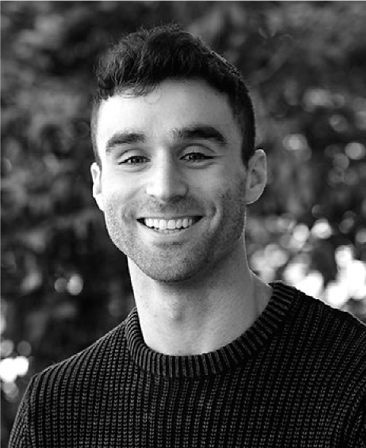
Photo by Karen Longwell
Mitchell Consky is a Toronto-based journalist with works published in the Globe and Mail, the Toronto Star, the Walrus, BNN Bloomberg, and CTV News. He specializes in long-form feature writing and essays about loss, travel, and adventure. He holds a master of journalism from Toronto Metropolitan University and a bachelors degree in English and film from Wilfrid Laurier University. When not working, his ideal escape is drifting on a canoe in Ontarios Algonquin Park.
A portion of Mitchells author royalties will be donated to cancer research at Sunnybrook Hospital in Toronto.

